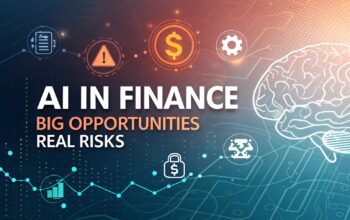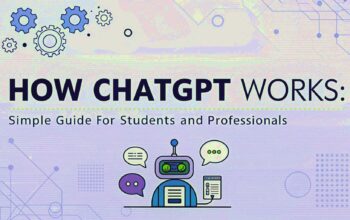Explore popular AI career paths and how to get started. Discover key roles, required skills, and steps to launch your journey in AI careers.
Artificial Intelligence (AI) continues to reshape the job market, offering exciting opportunities for professionals across industries. If you’re considering switching paths or just starting out, understanding AI careers can give you a clear edge in today’s tech-driven world.
Why AI Careers Are in Demand
The rapid growth of technology and automation has created a massive demand for professionals with AI expertise. From healthcare to finance, almost every sector now relies on AI-powered solutions to improve efficiency and decision-making. As a result, AI careers offer high salaries, job security, and long-term growth.
Moreover, as organizations adopt AI for tasks like data analysis, customer support, and forecasting, the demand for skilled professionals continues to rise. This is why more job seekers are turning to this field.
Popular Career Paths in AI
Let’s explore the most sought-after roles in AI and what they involve:
1. Machine Learning Engineer
Machine Learning Engineers build algorithms that allow systems to learn from data. This role typically requires strong programming skills, particularly in Python, along with experience in frameworks like TensorFlow or PyTorch.
2. Data Scientist
Data Scientists analyze large datasets to extract actionable insights. They often use AI tools to create predictive models that support business decisions. This role bridges AI and business strategy, making it highly valuable.
3. AI Research Scientist
AI Researchers focus on pushing the boundaries of AI through new algorithms and models. Most roles in this category require a Ph.D. and a strong academic background in mathematics and computer science.
4. AI Product Manager
These professionals manage the development and deployment of AI-based products. A background in both AI technology and business helps them understand customer needs and technical constraints.
5. Robotics Engineer
If you’re interested in combining AI with mechanical systems, this role might be ideal. Robotics Engineers develop smart machines that interact with the real world using AI algorithms.
Skills You Need to Build a Career in AI
While career paths vary, successful AI professionals often share a common set of skills:
- Programming: Proficiency in Python, R, or Java is essential.
- Mathematics & Statistics: A solid foundation in linear algebra, probability, and calculus helps understand AI algorithms.
- Data Handling: Experience with big data tools like Hadoop or Spark is a plus.
- AI Tools & Frameworks: Familiarity with TensorFlow, Keras, and Scikit-learn is expected in most AI careers.
- Communication Skills: Explaining technical concepts to non-technical stakeholders is a valuable asset.
Additionally, certifications from platforms like Coursera, edX, or Google can give your resume an edge.
How to Get Started in AI Careers
Now that you know the roles and skills, here’s how to begin:
- Choose a Specialization: Identify which AI career path aligns with your interests and background.
- Start Learning Online: Enroll in courses related to machine learning, deep learning, or natural language processing.
- Work on Projects: Build a portfolio on GitHub to demonstrate your skills. Employers value hands-on experience.
- Network: Join AI communities, attend webinars, or connect with professionals on LinkedIn.
- Apply for Entry-Level Jobs: Look for internships, apprenticeships, or junior-level roles to get your foot in the door.
Remember, every expert in AI once started with no experience. The key is to remain curious and keep learning.
Industries Hiring for AI Careers
AI careers span across various sectors. Here are some industries actively hiring AI talent:
- Healthcare: AI is revolutionizing diagnostics, treatment planning, and medical imaging.
- Finance: Fraud detection, algorithmic trading, and customer support bots are AI-driven.
- Retail: AI helps in recommendation systems, inventory management, and personalization.
- Automotive: Self-driving cars and smart traffic systems are powered by AI.
- Education: Personalized learning paths and virtual tutors are just the beginning.
Challenges to Expect in AI Careers
Despite its appeal, this field also comes with challenges. The constant evolution of technology requires professionals to update their skills regularly. Additionally, ethical concerns around AI, such as bias and data privacy, make it necessary to stay informed and responsible.
However, with the right mindset and training, you can overcome these hurdles and thrive in this exciting domain.
FAQs
1. Do I need a degree to start a career in AI?
Not necessarily. While a degree helps, many professionals enter AI careers through online courses and self-study. Building a strong portfolio is key.
2. What are the best platforms to learn AI skills?
Top platforms include Coursera, Udacity, edX, and free resources like Kaggle and GitHub.
3. Is AI a good long-term career?
Absolutely. The demand for AI professionals is projected to grow steadily, making it a future-proof career path.
4. Can non-tech professionals switch to AI careers?
Yes. Many roles like AI project manager or data analyst require analytical and business skills more than deep coding knowledge.
5. How much do AI professionals earn?
Salaries vary by role and location, but most AI careers offer above-average compensation. For example, a Machine Learning Engineer can earn over $120,000 annually in the US.
As AI continues to shape the future, now is the perfect time to explore AI careers. Whether you’re a tech enthusiast or a problem-solver, this field offers diverse opportunities to grow and make an impact.



